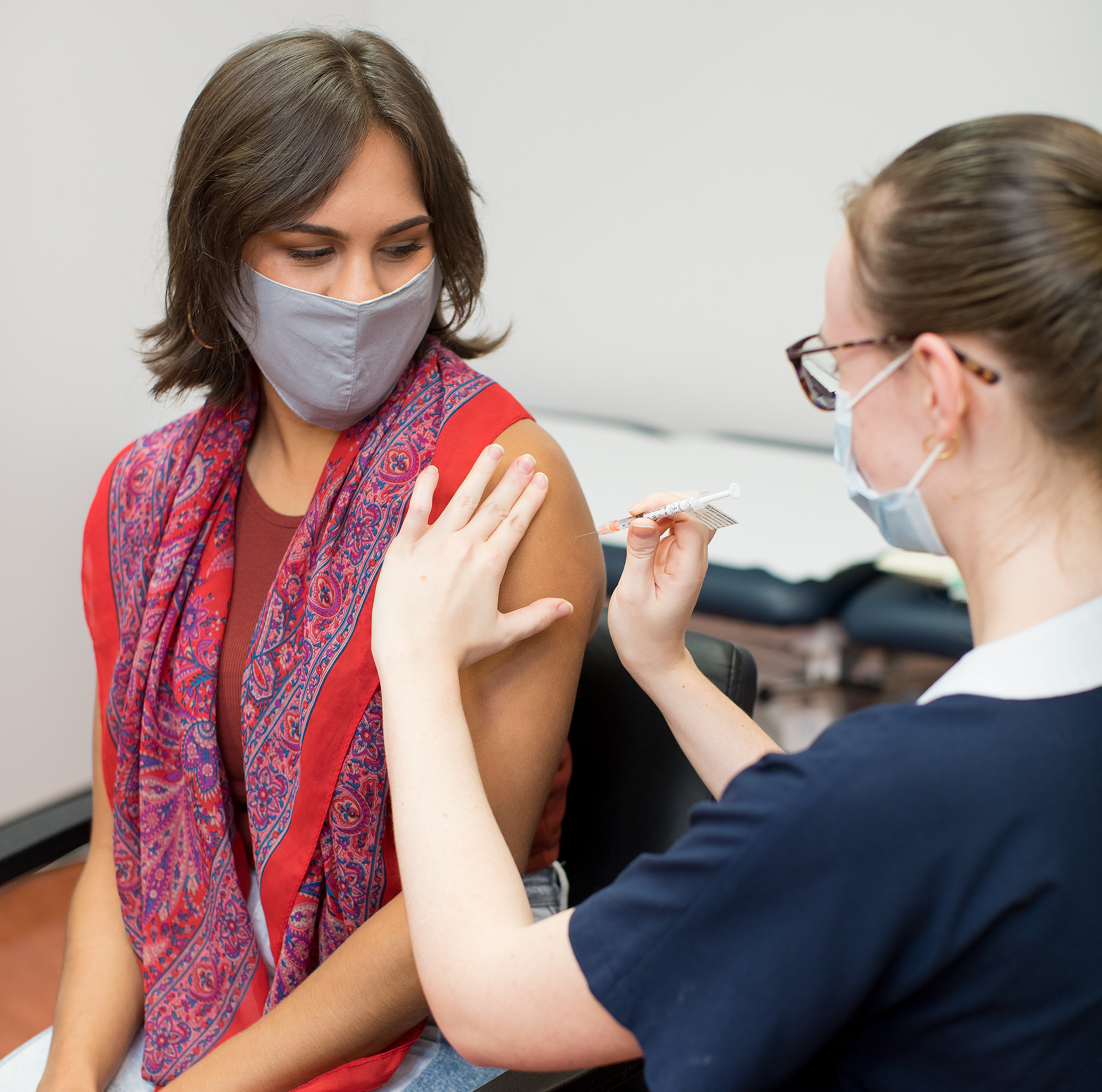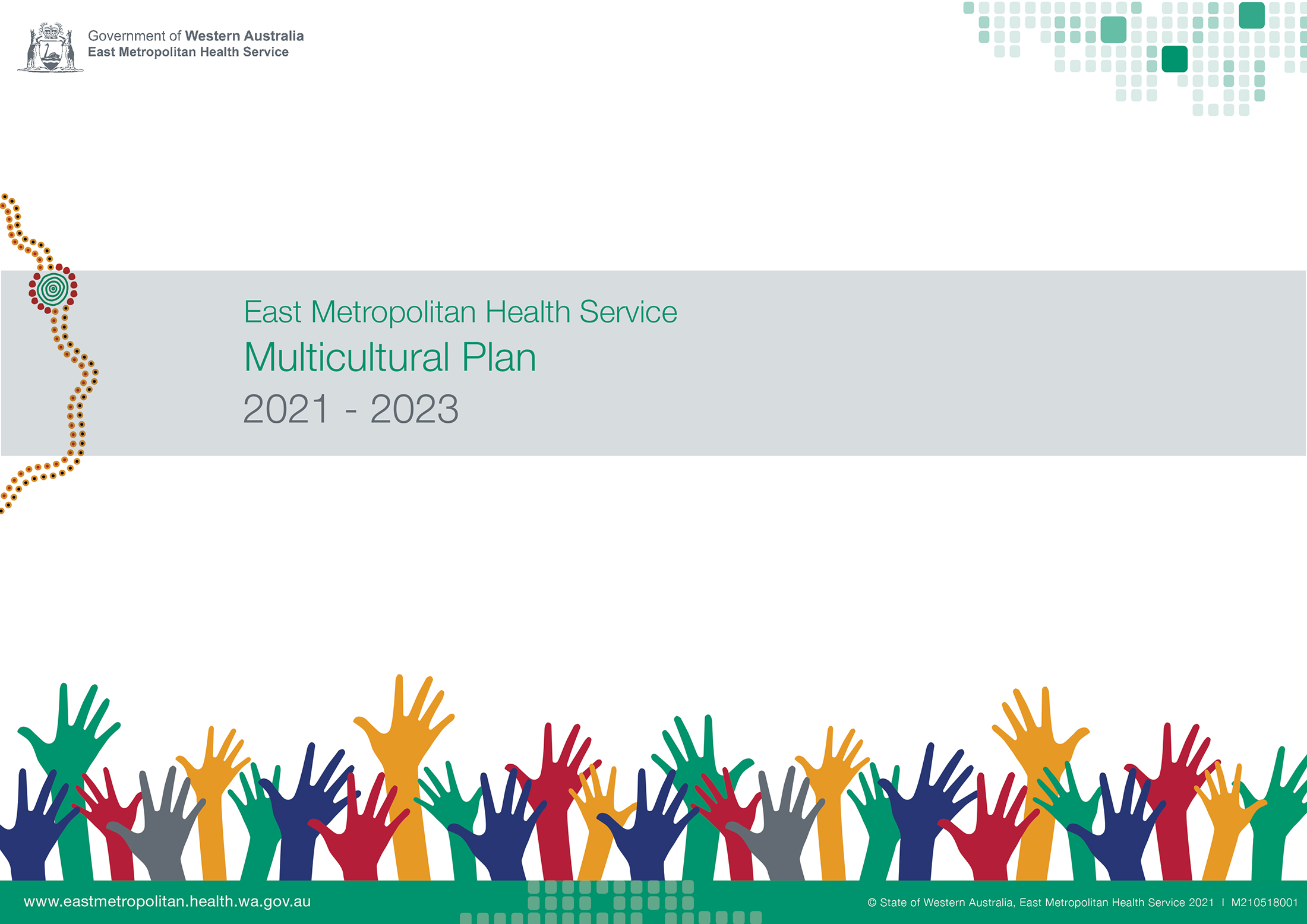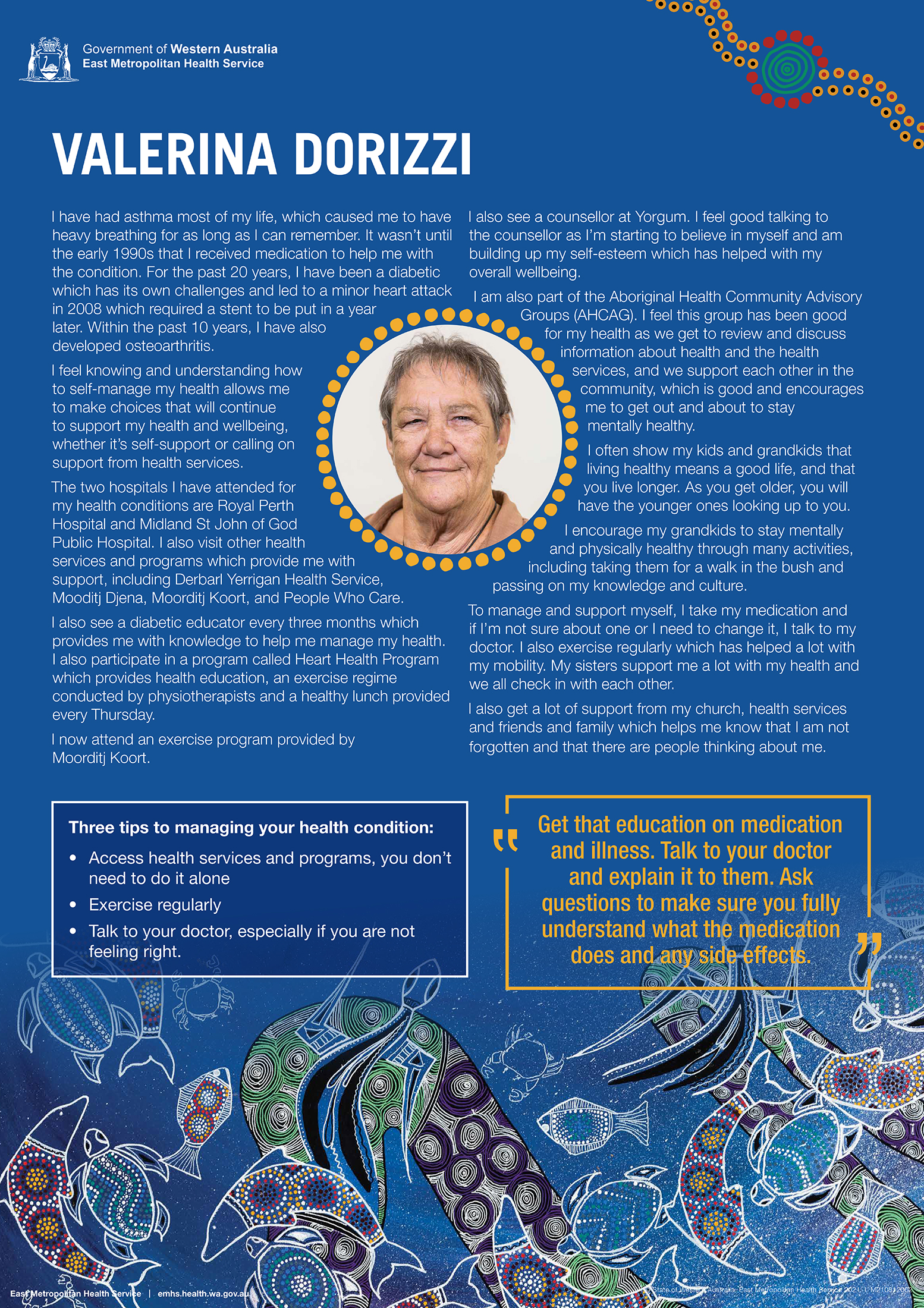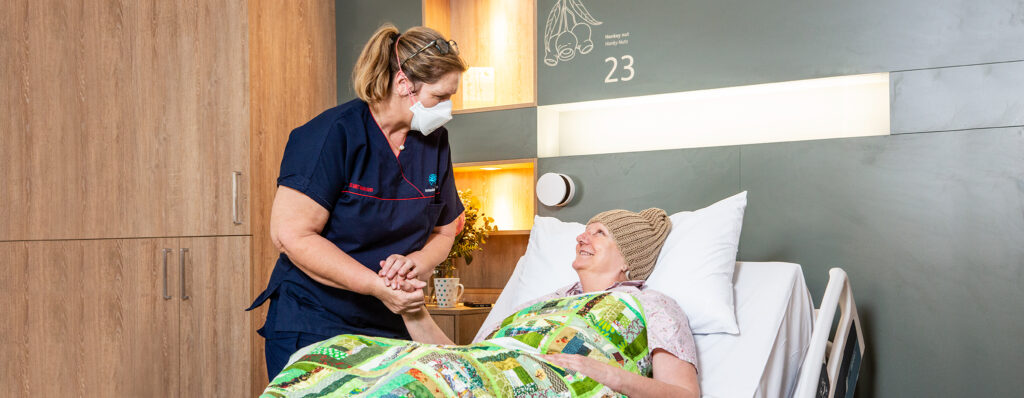Caring for our multicultural community

Culturally safe COVID vaccination clinic
Lifting vaccination rates among vulnerable populations was an important part of EMHS’ COVID-19 response.
Our Aboriginal community was not only extremely vulnerable to COVID, but also lagged behind the overall population in its rates of vaccination.
EMHS played a key role in efforts to increase those rates by partnering with other organisations to establish a culturally safe vaccination clinic.
The clinic was set up at the Derbal Yerrigan Health Service in East Perth, with RPH providing and delivering the vaccine.
Most people jabbed were Perth locals, but some were from towns as far away as Leonora, Kalgoorlie, Roebourne and Newman. Many had learnt of the clinic through the Noongar network.
Derbal Yerrigan Chair Joslyn Eades-Tass said her organisation was grateful to EMHS and other members of the partnership for their efforts in arranging the clinic because there had been considerable vaccine hesitancy in the Aboriginal community.
Former Miss NAIDOC, Ilona McGuire, was among those who lined up at the clinic to get vaccinated.

Progressing care for our multicultural community
The EMHS Multicultural Plan 2021-23 was developed to outline the key actions, desired outcomes, timeframes and responsibilities for implementation over the next three years. The Multicultural Plan focuses on three policy priorities:
- Harmonious and inclusive communities
- Culturally responsive policies, programs and services
- Economic, social, cultural, civic and political participation.
Policy priority 1: Harmonious and inclusive communities
- The RPH Aboriginal Family Garden was officially opened by the then Minister for Health, Hon Roger Cook MLA, in December 2021.
- A Wayfinding Working Group, in collaboration with EMHS Facilities Management and Pricewaterhouse Coopers Consulting (PwC), has developed and delivered a comprehensive review of signage across the RPH site. Positive ‘cleaner air’ signage was installed across campus with native animal illustrations as part of the smoke-free program.
Policy priority 2: Culturally responsive policies, programs and services
- The EMHS Strategic Plan 2021-25 was endorsed and published in August 2021. Supporting diversity and inclusion is a service delivery principle, and has specific strategic objectives and priorities aligned.
- AKG has established a Diversity and Inclusion Committee with the remit to explore opportunities for improvements to existing systems and processes to meet the needs of their diverse cultural and linguistic community.
- The top 10 languages for the RPH and BHS sites have been determined. A demographic dashboard has been drafted to capture this information live. Further, an interactive tool identifying potential diverse patients who have not been previously identified for interpreter usage is being used by language services. Priority publications have been translated into the top five languages, including consent forms and critical patient information. There are also plans to translate a welcome pack for each site.
Policy priority 3: Economic, social, cultural, civic and political participation
The EMHS COVID Vaccination Team worked closely with the WA State Vaccination Program to promote and educate, Culturally and Linguistically Diverse (CaLD) communities on COVID vaccination. This included:
- Aboriginal Liaison Officer inpatient vaccination program — educating and vaccinating Aboriginal inpatients and their visiting family members.
- Australian Islamic College — the team engaged with the school principal to understand cultural sensitivities and took advantage of a school family day to provide information around vaccination.
- Neerigen Brook Primary School — the EMHS team joined the largest local family to yarn about their vaccine concerns (the elder would decide on behalf of the entire family whether or not it got vaccinated). A pop-up vaccination clinic promoted considerable discussion within the community and resulted in members of the family receiving their first vaccine dose. The principal also assisted with ideas to further engage the community.
- St Mary’s Cathedral — two pop-up clinics helped to engage homeless, and Filipino and Croatian groups.
- Door-to-door vaccinations — the team worked alongside WA Police in areas known to have heavy CaLD populations to provide vaccinations. This worked well, because many from these communities did not feel comfortable attending a local community clinic.

Posters share stories in bid to inspire
Members of EMHS’ Aboriginal Health Community Advisory Group (AHCAG) turned their hands to storytelling during the year in an effort to encourage others in the community to take care of their health.
The stories of their individual health journeys were captured on 14 posters, each of which also offered a special health message and featured the individual’s photo and Aboriginal artwork.
The posters have been displayed across EMHS hospitals. Each of the storytellers had a chronic illness such as diabetes, asthma or lupus and their stories chronicled the support they had received from EMHS and key Aboriginal primary healthcare services.
One of the storytellers stressed the importance of exercising regularly, of having regular check-ups and of maintaining frequent contact with family and community, while another advised people to talk to their doctor — especially if they were “not feeling right” — and of accessing health services, because they didn’t need to do it alone.
As members of the AHCAG, they had gained important insights into the health system and wanted to share their health experiences to help improve the health journeys of others in their community.


